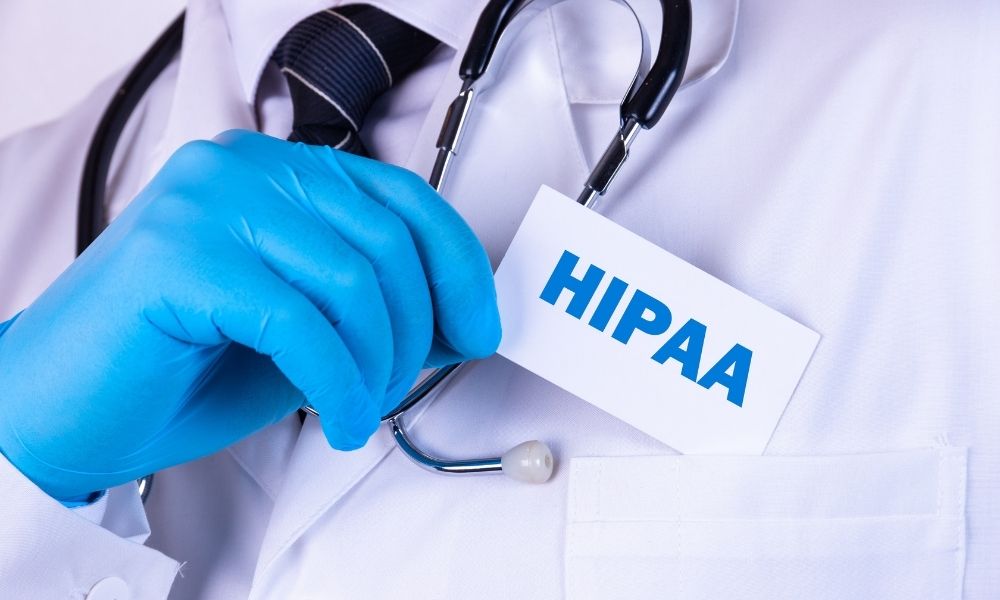The security of sensitive information is of paramount importance in today’s digital world. This applies to organizations of all types. Health Insurance Portability and Accountability Act gives strict guidelines to the healthcare industry for the handling, storage, handling and security of protected medical data (PHI). HIPAA compliance is vital for healthcare facilities to protect the privacy of patients as well as avoid penalties and maintain a good reputation.

HIPAA legislation covers health care providers and health plans, as well as healthcare clearinghouses, and business associated with HIPAA-covered entities. PHI is any information which could be used as a means to identify an person. This includes addresses, names, credit card information and Social Security numbers. PHI is of significant black market value due to its potential use for identity theft.
The HIPAA privacy rule sets out guidelines on the use and disclosure PHI. The covered entities are required to implement guidelines and procedures to ensure the integrity, confidentiality and availability of electronic personal health information (ePHI). The policies and procedures should address access controls, security incident procedures, security awareness training as well as other security measures. The covered entities have to restrict their disclosure and use of PHI only to what is required to accomplish the end-goal for which they are being made available or disclosed.
The HIPAA Security Rule requires covered entities to ensure the integrity, confidentiality and availability of ePHI through the use of appropriate and reasonable physical, administrative and technical security measures. These safeguards comprise audit and access controls along with integrity controls, transmission safety, and contingency plans. The entities covered by the policy must periodically conduct risk assessments in order to discover vulnerabilities and put in place mitigation measures.
The HIPAA Breach Notification Rule requires covered entities to notify affected individuals, the Secretary of Health and Human Services, and, in some cases media in the case of a breach of PHI that is not secured. The Privacy Rule defines a breach to be the acquisition, use or disclosure of PHI that is not covered by the Privacy Rules, which could compromise privacy or security. Covered entities have to conduct a risk assessment to determine the likelihood that the PHI has been compromised as well as the consequences from the breach.
HIPAA requires that all employees receive continuous education and training to ensure they understand their responsibilities and roles in relation to the security and privacy of patients. Risk assessments on a regular basis are conducted for covered entities to discover any potential vulnerabilities. They must then implement measures to minimize the risk. These could include the implementation of security controls or encryption of ePHI or preparing contingency plans for any security incidents that could occur.
Modern technology has profoundly impacted in all aspects of our lives and health care. Electronic health records have proved revolutionary in allowing healthcare professionals to store and manage patient data in a seamless way. HIPAA compliance is vital due to the huge cyber-security risks that have been created. Patient data is sensitive and must be kept protected in all times. HIPAA has never been more vital than it is now, with the growing risk of cyberattacks on healthcare organizations. HIPAA can help ensure the security and privacy of patient information, improving trust of patients with health care providers.
HIPAA helps healthcare providers keep their patients’ trust and protect their privacy. Failure to adhere to HIPAA regulations could lead to large fines, legal action, and reputational damage. Office for Civil Rights of Department of Health and Human Services (OCR) enforces HIPAA rules and has the authority to investigate complaints and review the compliance of organizations.
HIPAA Compliance is essential for healthcare providers to safeguard privacy of patients in the digital Age. The regulations laid out by HIPAA define clear guidelines for the management storage, processing, and safeguarding of patient health information. Healthcare institutions must ensure they are following policies and procedures to be in compliance with HIPAA regulations, conduct periodic risk assessments, as well as provide ongoing training and education for employees. They can stay clear of financial and legal penalties by maintaining trust among patients.
For more information, click why was hipaa created